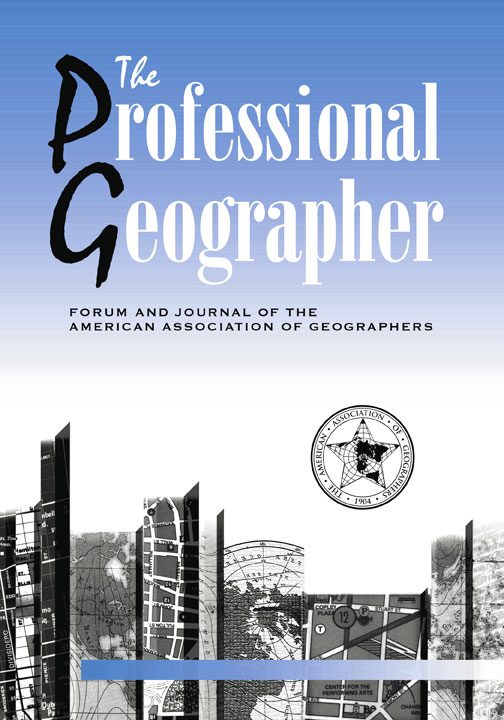Building Vibrant Departmental Cultures, Part Three: Developing more transparent and horizontal governance


My previous columns in this series described how we transformed Indiana University Geography from a space of personal and intellectual conflict into a vibrant and collegial department. As described in Part One of this series, a key component of our success was abandoning the traditional physical/human-environment/human geography division and replacing it with a problem-focused interdisciplinary departmental structure. A second key component was creating a culture of care and respect for students, staff, and faculty. In this column, I focus on developing more horizontal and transparent governance practices and policies.
Inclusive, horizontal governance
One of the most important factors for us in building cohesion has been buy-in: people need to feel that they have a real, substantive stake in departmental decisions. The trick is how to balance this with respecting the time of Assistant Professors and non-tenure-track (NNT) faculty, whose job security depends on not sinking too much time into service.
Our approach has been to create small (usually 3-4 member) ad hoc committees to investigate and make recommendations on any important policy decision. The chair of the ad hoc committee is a tenured faculty member charged with most of the labor: scheduling meetings, writing agendas, drafting memos to update the rest of the faculty, etc. Thus, the ask for the other committee members is only the substantive parts of the policy-making process: considering potential solutions, deciding how to explain them clearly and succinctly to the rest of the faculty, and recommending a path forward.
Each committee’s recommendations are discussed in faculty meetings. Often it takes two or three rounds of discussion to consider the strengths and weaknesses of an ad hoc committee’s proposal before we are ready to vote. Because of this careful process, and because we include an explicit proviso that we can revisit any decision if it does not achieve what we hoped it would, most of these votes are unanimous.
This approach creates a relatively horizontal governance structure by enabling a lot of substantive input with relatively small investments of time from our structurally vulnerable colleagues. We have used it to gradually change many aspects of our program, from giving NTT faculty all voting rights the university allows them (including voting on TT hires), to allowing public and engaged scholarship to count as up to 25% of promotion and tenure cases, to changing the pedagogy and methods requirements for our graduate program.
Transparent expectations
I started my term as department chair in 2019 intending to focus on our undergraduate program, but meetings with graduate students made it clear that the department had some serious discrepancies in mentoring that needed to be addressed immediately. We created an ad hoc committee focused on mentorship, this time with graduate student members as well. The ad hoc committee’s goal was to clarify our collective expectations for the responsibilities advisors and advisees had to each other and the rest of the departmental community. We felt that this transparency was particularly important for first generation and international students, who often had no idea how advisors were supposed to behave, what advisors could and could not ask of them, or where their funding came from.
In the end, we made three big changes to our graduate program. The most important was a unanimously adopted list of expectations for advisors and advisees that spelled out agreed-upon practices for everything from professionalization and pedagogy training to timelines for replying to emails. This included sections on what advisors should never ask students to do, and on the department’s responsibility to admitted students. The documents we produced went through many more rounds of review than was typical because they touched on almost aspect of department of life.
Guidance for Advisor/Advisee Interactions
The Department of Geography views graduate education as one of its key missions and would like our community to be clear on the central aspects of the advisor/advisee relationship. Graduate education is a form of apprenticeship, but there are basic responsibilities on both sides. Professors expect professional behavior from students and students should receive the same from faculty advisors. Finally, it is important to note that it is the Department, not the advisor, that admits graduate students, and thus the Department also has responsibilities to graduate students as spelled out below.
Students should:
- Communicate constructively and respectfully with all members of the department, including office staff.
- Behave professionally in all academic settings.
- Work with their advisor to schedule arrival times for drafts of presentations, articles, etc. to enable advisors to provide timely feedback.
- Meet deadlines agreed to with their advisors.
- Respond to communications from their advisor during the academic year within three working days for research-related questions, and one working day for AI-related duties unless otherwise indicated in the email, and absent extenuating circumstances (e.g. a health crisis).
- Nudge their advisor if they do not respond in a timely fashion as defined below.
- Keep all appointments unless other arrangements have been made.
- Engage, reflect, and act on their advisor’s feedback and advice.
- Get in touch with their advisor immediately if they run into serious intellectual or professional issues, or personal issues that affect their research or other academic duties.
- Help to build the intellectual community in the department through participation in courses, attendance at departmental colloquia, attendance and participation with GGSO, and interactions with other faculty and graduate students.
- Be aware of what constitutes plagiarism and avoid it.
- Contribute actively to their own intellectual development, and work to expand their intellectual resources and community.
- Be proactive about forming an advisory committee, and also about changing the composition of that committee if needed.
- Meet with their advisory committee annually to discuss their progress towards degree.
- Fill out an evaluation of their advisor each year using the departmental checklist, and submit it to the Director of Graduate Studies.
Advisors should:
- Interact constructively and respectfully.
- Meet at least bi-weekly during the academic year with students who are in residence, if not on medical, parental or sabbatical leave, and absent extenuating circumstances (e.g. health crisis).
- Respond to student communications during the academic year within three working days for research-related questions, and one working day for AI-related duties unless otherwise indicated in the email; if not on medical, parental or sabbatical leave; and absent extenuating circumstances (e.g. a health crisis).
- Respond gracefully and respectfully to reminders from students.
- Help students understand the substance and methods of their field by providing intellectual guidance and training.
- Discuss and provide guidance on research ethics.
- Encourage safety in the field.
- Encourage a healthy work/life balance.
- Help students understand the expectations for professional behavior in their field (e.g. how to behave in the classroom, at conferences, etc.).
- Work with students on the basics of academic professionalization, including:
- How to prepare an academic CV;
- How to write a conference abstract;
- How to give the most common forms of academic presentations (e.g. 15 and 45-minute talks);
- How to write a grant application (if relevant); and
- How to apply for academic jobs.
- Encourage and help students to publish by:
- Discussing journal selection;
- Reviewing draft manuscripts; and
- Teaching students efficient and constructive ways to respond to peer reviews.
- Provide useful and timely feedback on student work during the academic year, if not on medical, parental or sabbatical leave and absent extenuating circumstances (e.g. a health crisis) as follows:
- On presentations, within three working days;
- On article and thesis drafts, within 1-2 weeks; and
- On dissertations, within one month.
- Feedback should be constructive and respectfully-phrased
- Determine the standards for presentations, theses, dissertations, journal articles, and reports.
- Give students credit for contributions to papers, presentations, or other products.
- Work with students on non-course specific teaching skills, including:
- How to prepare a syllabus;
- How to facilitate class discussions;
- Fair and appropriate grading; and
- How to deal with teaching-related problems (e.g., difficult students, misconduct, etc.).
- Help students connect to other scholars in their field.
- Discuss alternatives to academic careers and direct the student to relevant resources, such as the Walter Center.
- Meet with their advisee’s full committee annually to discuss progress towards degree.
- Fill out an evaluation of their advisee each year using the department checklist and submit it to the Director of Graduate Studies.
Advisors should never:
- Expect student assistance in non-academic realms (e.g. running personal errands).
- Belittle or demean a student in person or other media.
- Deny students access to data they helped collect.
- Express romantic or sexual interest in a student or commit any form of gender or sexual harassment.
- Use a student’s work without attribution.
- Ask an AI/RA to work more than 20 hours/week.
- Ask a student to write papers or presentations for
- Ask a student to write their own recommendation letter.
The Department should: [1]
- Provide students with up-to-date information that includes policies, practices, degree requirements, and resources.
- Assist students with selection of their advisors as needed.
- Communicate clearly and comprehensively about funding packages in admissions letters.
- In cases where conflicts arise between advisors and advisees, the DGS (or the Chair, if the DGS is the advisor) will:
- Meet with the advisor and advisee to resolve those conflicts;
- Follow up within 8 weeks to see if the conflict has been addressed;
- If not, the DGS or Chair will:
- Assist the student in finding another advisor in the department;
- Assist the student in finding another advisor at IU;
- Assist the student in selecting appropriate programs at other universities.
- Provide pedagogical training and regular assessment of their teaching and other assistantship activities.
- Review graduate student progress toward their degrees and professional development, including mentoring meetings, committee meetings, exam completions, and other benchmarks appropriate to their discipline.
- Provide appropriate infrastructure to allow students to complete their education and research in a timely and productive manner, such as office space, computers, laboratory facilities, and equipment.
- Provide opportunities for professional development that will be relevant to students seeking careers outside academia and/or their research discipline.
- Establish and communicate policies for emergencies and unplanned situations that may disrupt the work of students and/or faculty.
- Incorporate these guidelines and recommendations into their departmental policies or handbooks and actively promote their observance.
[1] Modified from Penn State’s Guidelines for Advisor-Graduate Student Interactions
With transparent expectations in place, we turned to accountability: trying to identify when we were not living up to expectations so that we could fix issues before they turned into crises. We converted that list of expectations into check-box forms to be completed each year by advisees and advisors and sent to the Director of Graduate Studies (not each other). We also adopted a practice of requiring graduate students to convene their research committee annually to check in on their progress towards degree and discuss any questions or concerns the student might have. As with the checklists, the goal of the annual committee meetings is to catch issues while they are still fixable, but by allowing other faculty members to observe the advisor/advisee relationship directly rather than relying on self-reporting.
Advisor’s Checklist
Advisor: _______________________________ Date: ____________
Advisee: _______________________________
To my knowledge, this student is:
___ Communicating constructively and respectfully with all members of the department, including office staff.
___ Behaving professionally in all academic settings.
___ Working with me to schedule arrival times for drafts of presentations, articles, etc. to enable me to provide timely feedback.
___ Meeting the deadlines we have agreed to.
___ Responding to communications from me during the academic year within three working days for research-related questions, and one working day for AI-related duties unless otherwise indicated in the email, and absent extenuating circumstances (e.g. a health crisis).
___ Nudging me if I do not respond in a timely fashion.
___ Keeping all appointments unless other arrangements have been made.
___ Engaging, reflecting, and acting on my feedback and advice.
___ Getting in touch with me immediately if they run into serious intellectual or professional issues, or personal issues that affect their research or other academic duties.
___ Helping to build the intellectual community in the department through participation in courses, attendance at departmental colloquia, attendance and participation with GGSO, and interactions with other faculty and graduate students.
___ Aware of what constitutes plagiarism and how to avoid it.
___ Contributing actively to their own intellectual development, and working to expand their intellectual resources and community.
___ Taking their pedagogical responsibilities for the department seriously, and practicing leading part or all of a class session from their third semester until they serve as lead instructor or graduate.
___ Being proactive about forming an advisory committee, and also about changing the composition of that committee if needed.
___ Meeting with their advisory committee annually to discuss their progress towards degree.
Please explain any areas of concern:
Advisee’s Checklist
Advisor: _______________________________ Date: ____________
Advisee: _______________________________
My advisor is:
___ Interacting with me constructively and respectfully.
___ Meeting with me at least bi-weekly during the academic year.
___ Responding to emails from me during the academic year within three working days for research-related questions, and one working day for AI-related duties unless otherwise indicated in the email.
___ Responding gracefully and respectfully to reminders from students.
___ Helping me understand the substance and methods of my field by providing intellectual guidance and training.
___ Discussing and providing guidance on research ethics.
___ Encouraging safety in the field.
___ Encouraging a healthy work/life balance.
___ Helping me understand the expectations for professional behavior in my field (e.g. how to behave in the classroom, at conferences, etc.).
___ Working with me on the basics of academic professionalization, including:
- How to prepare an academic CV;
- How to write a conference abstract;
- How to give the most common forms of academic presentations (e.g. 15 and 45-minute talks);
- How to write a grant application (if relevant); and
- How to apply for academic jobs.
___ Encouraging and helping me to publish by:
- Discussing journal selection;
- Reviewing draft manuscripts; and
- Teaching me efficient and constructive ways to respond to peer reviews.
___ Providing useful and timely feedback on my work during the academic year as follows:
- On presentations, within three working days;
- On article and thesis drafts, within 1-2 weeks; and
- On dissertations, within one month.
___ Giving me clear direction about their standards for presentations, theses, dissertations, journal articles, and reports.
___ Giving me credit for contributions to papers, presentations, or other products (see departmental co-authorship guidelines)
___ Working with me on non-course specific teaching skills, including:
- How to prepare a syllabus;
- How to facilitate class discussions;
- Fair and appropriate grading; and
- How to deal with teaching-related problems (e.g., difficult students, misconduct, etc.).
___ Helping me connect to other scholars in my field.
___ Discussing alternatives to academic careers and helping me connect to relevant resources, such as the Walter Center.
___ Meeting with my full committee annually to discuss progress towards degree.
My advisor is not:
___ Expecting me to assist them in non-academic realms (e.g. running personal errands).
___ Belittling or demeaning me in person or other media.
___ Obstructing my access to data I helped collect.
___ Expressing romantic or sexual interest in me or committing any form of gender or sexual harassment.
___ Using my work without attribution.
___ Asking me to work more than 20 hours/week on average for my AI/RA position.
___ Asking me to write papers or presentations for them.
___ Asking me to write my own recommendation letter.
Please explain any areas of concern:
Better is Possible
In this series, I have highlighted a few things that I believe have been particularly important in our departmental journey, but there is no blueprint for building a vibrant department. My colleagues here at IU might emphasize different aspects of our collective work, and there are many other excellent approaches to building horizontal and inclusive governance that we have never tried. What I can say with confidence is that we are in a staggeringly better place than I ever imagined in my initial years at IU, working with my head down and my door shut. In dream hampton’s words: “Better is Possible”
This is the third of three parts of a series on culture change at University of Indiana Geography.
Please note: The ideas expressed in the AAG President’s column are not necessarily the views of the AAG as a whole. This column is traditionally a space in which the president may talk about their views or focus during their tenure as president of AAG, or spotlight their areas of professional work. Please feel free to email the president directly at rlave [at] indiana [at] edu to enable a constructive discussion.

